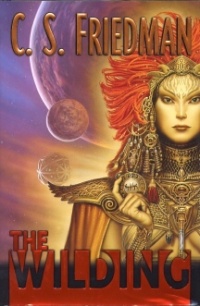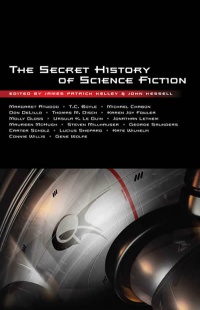I’ve just finished creating an index of all my full-length reviews (see tab at the top). Been meaning to do it forever, but somehow my good intentions usually end up losing in the never-ending battle with procrastination. Anyway, it’s done now and I hope it’s helpful.
Blogroll
Forums
Resources
-
Recent Posts
Recent Comments
- Jem by Frederik Pohl (1979) | Science Fictions Golden Age on Pohl’s Jem may not be a “gem” but is still worth a look
- Scott on Campbell said all fiction is science fiction
- CB Hackworth on Gunn’s medical dystopia — The Immortals
- Carl F. Johnson on Simak’s Cemetery World
- Matt Blk on Welcome to the Machine
Archives
- January 2011
- November 2010
- August 2010
- March 2010
- February 2010
- January 2010
- November 2009
- October 2009
- September 2009
- August 2009
- July 2009
- June 2009
- May 2009
- April 2009
- March 2009
- February 2009
- January 2009
- December 2008
- November 2008
- October 2008
- September 2008
- August 2008
- July 2008
- June 2008
- May 2008
- April 2008
- A Fire Upon the Deep Alfred Bester Algis Budrys anthologies archaeology arjen lucassen Arthur C. Clarke A Time of Changes A Wrinkle in Time book reviews books Brian Aldiss Carl Sagan Childhood's End Contact Damon Knight Dune dystopias first contact Frank Herbert Frederick Pohl Frederik Pohl Gene Roddenberry Hainish Cycle Harlan Ellison Iain M. Banks In Conquest Born Isaac Asimov J. G. Ballard Jack Williamson James E. Gunn James Gunn John Brunner John Clute Kate Wilhelm Kim Stanley Robinson Kurt Vonnegut Jr. Larry Niven Madeleine L'Engle movies music Nancy Kress Octavia Butler Olaf Stapledon Philip Jose Farmer Philip K. Dick post-apocalypse Ray Bradbury Robert Charles Wilson Robert Heinlein Robert Sheckley Robert Silverberg sci-fi science fiction SETI SF short stories space opera star one Star Trek telepathy The Listeners Theodore Sturgeon The Space Merchants The Stars My Destination The World Inside Thomas Disch Thomas M. Disch time travel Ursula K. Le Guin utopias Vernor Vinge video games William Tenn Xbox 360
 Latest from SF Signal
Latest from SF Signal- An error has occurred; the feed is probably down. Try again later.
 Latest from io9
Latest from io9- An error has occurred; the feed is probably down. Try again later.
 Latest from Slice of SciFi
Latest from Slice of SciFi- An error has occurred; the feed is probably down. Try again later.
 Latest from AMC’s SciFi Scanner
Latest from AMC’s SciFi Scanner- An error has occurred; the feed is probably down. Try again later.
Pages
Calendar
Feeds & Stuff















